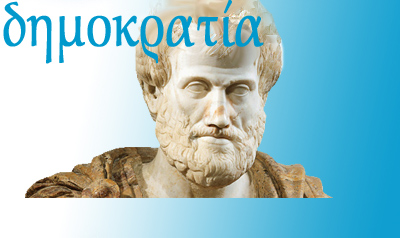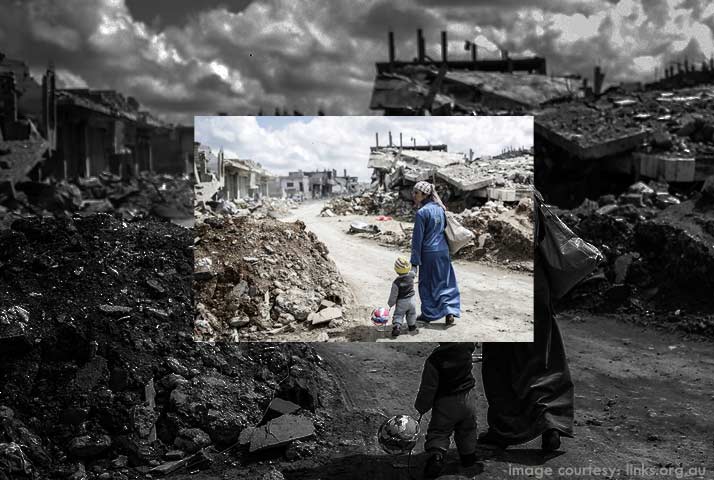There Are No Shortcuts To Struggle for Freedom!

In times of great distress (social, economic, or political), nations sprout two types of people: the panicky and the resolute. The panicky as the name implies are those that lose hope, courage, or confidence when “the going gets tough” and whose hopelessness deepens as the struggle drags on. They lack vision, courage, and stick-to-itiveness. Every setback and any shortcomings is seen by them as an affirmation that the struggle is hopeless and useless.
The resolute on the other hand are the opposite. “When the going gets tough” they just “get going”. Every obstacle, every difficulty somehow increases their determination to strive harder. They may change their tactics or short-term strategy but never their grand aim: total liberation and freedom from tyranny. They have faith in the future and faith in their own people. They recognize that people and fortunes can change in myriads of ways and work hard to give it a positive push. Like South Africa’s Mandela, they believe “there is no easy walk to freedom anywhere” and that “many of us will have to pass through the valley of the shadow of death again and again before we reach the mountaintop of our desires.”
Who are the panicky? For the purpose of this article, I am using it broadly to include the wishy-washy, the philosopher wannabe’s, “the reform from within” gang, and all those who prey on the weak-minded or the naïve. Both PFDJ sycophants/apologists who try to sanitize PFDJ tyranny for all sorts of reasons and the Neo-Unionists who advocate a back to Ethiopia Band-Aid solution to Eritrea’s problems belong to this category (i). These are people who for one reason or another have concluded (by themselves or with the prodding of others) that a) the struggle against dictatorship has failed irremediably and b) that the opposition will never amount to anything.
The leaders (misleaders rather) of these defeatist movement (I can think of no other fitting epithet) who push such views relentlessly are a highly vocal handful. As to the led (misled), your guess is as good as mine. But whatever their exact number, a more relevant question to ask is how do they ever get away with such morbid notions? If we dig down to essentials, we will find that one word sums it all up: fear- mongering. “The opposition will be crashed or will self-destruct”; “popular revolt will plunge our country into a terrible chaos – look at the Middle East”; “our people will suffer if we continue the struggle”; “we will never win, we are doomed to fail”; and so on and so forth.
PFDJ sympathizers who decry democracy and preach tolerance of tyranny and the Ethiophiles who crave unity with Ethiopia have two things in common; both advocate an end to struggle for freedom and both exploit real issues to frighten Eritreans from continuing the struggle. Below, we will look at some of these exploited issues starting with the much aligned…
OPPOSITION: your problem; not mine
The curious thing about our attitude towards the opposition is that we all refer to it as if it is a single person – as something out there separate from us. We forget that we are all to blame for the problems particularly those who constantly derail it with all sorts of fanciful theories. Here is a critical difference in perspective between the panicky and the resolute. To the panicky, the opposition is not only fragmented and weak today but will always be so. Their whole outlook is constrained by what happened in the past or by what is happening now not by future possibilities. They not only never consider or envision a brighter future but consciously or unconsciously belittle every positive and encouraging aspects of the struggle.
They don’t consider for example the phenomenal growth of movements against GOE or the equally rising numbers of defections at the highest and lowest levels of government as a positive development. Nor do they consider the opposition’s trial and error struggles to coalesce into a united front as a healthy sign that will finally succeed. Nor do they consider the many other indicators of a gathering momentum in favor of the opposition such as the increasing isolation of the Eritrean government; the widespread disgruntlement in the army; the growing sophistication of the Diaspora activism; and the mounting spirit of defiance in and out of Eritrea. They instead like to wallow in far-out, unrealistic, vague notions as if to escape from the harsh reality of the struggle for freedom just as some might turn to alcohol to drown out sorrow. The resolute are more realistic and far-sighted. They also criticize the opposition for the failures in certain areas but unlike the panicky who do so with the intention of abandoning or diverting the struggle, they do it with the goal of reforming or galvanizing it. That is the critical difference.
For the opposition, pessimism is a much serious obstacle than its shortcomings and probably accounts for a lot in the latter. As Eisenhower once put it “optimism and pessimism are infectious”. If allowed to fester and spread, it will destroy the opposition and everything we hold dear. It is natural of course to feel a certain degree of pessimism and frustration particularly after a string of failures but it is also natural to shake it off and rise again as Maya Angelou so beautifully put it once:
You may write me down in history
With your bitter, twisted lies,
You may trod me in the very dirt
But still, like dust, I’ll rise.
Though all past attempts have so far failed, we must keep in mind that the opposition needs only one successful attempt to turn things around; a single successful operation is all that is needed to wipe out fear, galvanize the public, and to belie the fear mongers. It is also important to remember that all struggles for freedom that ultimately triumphed were once as weak and as disorganized as we are and at times felt (as we sometimes do) that the odds were too high for them to overcome. Our own struggle for independence is a case in point.
Some raise a big hue and cry over the opposition’s acceptance of whatever support Ethiopia was willing to give. This is really much ado about nothing! The goal of an opposition (particularly against a powerful dictatorship) is and should be to weaken and destroy the oppressive regime in a variety of ways preferably all on its own but when it lacks resources to mount an effective assault on its enemy, there is absolutely nothing wrong with asking for outside help provided there are no strings attached that would compromise the sovereignty and territorial integrity of Eritrea. As far as I know, no such deals were ever made.
Ali Salim lamented that he was “sick and tired of the PURPOSELESS OPPOSITION” (his emphasis). This is of course totally untrue. The opposition in general may be weak and divided but it is not purposeless. It has a clearly defined and overarching goal namely the dismantlement of tyranny and dictatorship. If he failed to discern a purpose, could it be because he has been “hopping from one opposition to the other” (as he himself tells us) – perhaps searching for the one that agrees with him in everything? Did he finally find it in PFDJ? Could the same impatience be causing him to vacillate from one political stand to another? It appears to be so.
In reality though, Ali Salim’s U-turn is not as radical a departure from his previous views as it appears because he has never been one to favor democracy to begin with. He has unequivocally and publicly decried it once in one of his articles and relented only when I drew his attention to it in an article I wrote in response (ii). A U-turn? Not quite. More like a wrong turn! I would dramatize it like this:
Ali Salim was driving through a bewildering maze of winding roads seeking for the ideal opposition when he suddenly and accidentally found himself deep in enemy territory. Glib that he is, he quickly assured his captors that he has already dissociated himself from the opposition; thereupon, he was given a copy of Hobbes’s Leviathan (iii) and instructed to: “go and share your new-found enlightenment with your former comrades but thou shalt not speak ill of us”. ().
I am done teasing Ali Salim ….it pains me that people like him keep forcing us to discuss issues that we thought were decades behind us. What he has been advocating is qualitatively not different from what the die-hard shaebians of yesteryear used to champion (my government right or wrong). How disappointing!
The next issue we will discuss (chaos scare) is also an old one that many shaebians and many in the panicky camp (including Ali Salim) exploit most. I will therefore dwell on it a little longer.
The Chaos bogeyman: a favorite tool of dictators
No dictator worth the name ever fails to invoke it. Since time immemorial, dictators have always claimed the right to exclusive and unilateral authority based precisely on such a pretext. It is a convenient tool for the dictator who realizes that a chaotic situation is more of a danger to him than to the populace at large but when the victims themselves fall for the ruse, it is utterly and laughably sad!
The underlying assumption here is that life under dictatorship is better than a possible chaos. Note the emphasized word. This is something imagined and speculative while dictatorship is “a clear and present danger”. The chaos line of argument received a boost recently with what is happening in the Arab world but I think the comparison is unwarranted. Though impossible to say with certainty, I consider it unlikely because the usual raw materials for wider chaos (ethnic/religious/racial rivalry) are largely absent in Eritrea. Who will fight against whom in Eritrea? What Shias or Alawites will fight against what Sunnis? What is the likelihood of an all-out war between Christians and Muslims? In my estimation, inter-tribal or inter-religious hatred has never reached critical levels that we find elsewhere.
The only real chaos we can reasonably expect is between those in power and the Eritrean public and this is the kind of chaos we should all welcome! It is a truism that those with vested interest will never go down easy and that is why almost all struggles against entrenched dictators usually go through a chaotic period of some sort. As Thomas Paine once put it, “tyranny, like hell, is not easily conquered”. The Arab world is currently going through a difficult period. Our proclivity to stereotype may incline us to condescendingly point and say those lawless Arabs or Muslims but if we could sneak back in history with our video cameras we would probably witness similar scenes in almost all revolutions and civil wars of Europeans we so idolize today. We have a recent example in the former soviet republics and in the ongoing debacle in Kiev. Because of its geopolitical importance, foreign interference is adding to the complexity and difficulty but in the end, freedom fighters in the Arab world will also triumph and all that is happening now will be history as was the centuries-long European wars and civil wars.
Chaos is not to be feared if it carries with it the possibility of removing tyranny. If you were to ask the many innocents who are withering away in various shaebia dungeons, prison camps, or pining away in perpetual serfdom all over Eritrea if they would be willing to risk chaos in the country for a chance of freedom, the resounding response is likely to be “YES! Bring it on!” This is because to them, Eritrea is already in a nightmarish, lawless, and chaotic situation. The only difference is that the current chaotic agent is the anarchic government – a veritable killing machine that has killed and will continue to kill until it is totally dismantled. Isn’t it asinine therefore to agonize over the hypothetical possibility of chaos when one is already living in a reign of terror? Isn’t it worth risking a chaotic period for the chance of ending dictatorship? Isn’t the definition of courage going after possibilities despite or in spite of real risks?
Moreover, we will never totally escape from chaos – we will only defer it for a much greater chaos as what has been seething suddenly blows in our face with a vengeance. Dictatorship in the long-run causes far greater cumulative damage to the nation as a whole than chaos-ridden revolts though the short-term intensity of the latter may appear greater.
Struggle for freedom- Will it ever end?
Some will ask: how long do you expect Eritreans to struggle for freedom? The answer is as long as it takes! Why? Because slavery is an evil that must be fought resolutely no matter how long it takes or how hard it gets. If you have been waiting for the struggle for freedom and justice to end, you may be shocked to learn that it never will! ”The struggle did not end when Mandela was released from prison” wrote a journalist recently and “it cannot end with his death. In one form or another, it must continue. And it will.” Our own struggle did not end with independence and the ongoing struggle will continue long after the demise of dictatorship. Struggle for freedom is a never ending quest. Ask African Americans or any other groups that fought long and hard for freedom. So don’t let anyone dampen your spirit by counting the years of struggle.
There are no short-cuts to fighting dictatorships – period; no alternatives to ending oppression but through sustained sacrifice and struggle. I wish there were! Even if we have to do it stumbling, falling, or limping, the struggle must continue because left to its own devices, a dictatorship will continue to embed its powers deeply and the longer we wait fearing chaos, the stronger it becomes.
We must also constantly keep in mind that a dictatorship’s destructiveness is not confined to the political sphere alone. Economically, it rapidly and unremittingly drains the nation’s resources; intellectually, it stifles creativity and the pursuit of knowledge; socially, it unilaterally imposes norms and rules of conduct; diplomatically, it ignites wars and cataclysms. It is an ongoing disaster in every way and from every angle.
Let us therefore say No to dictatorship! No to PFDJ sycophants/apologists! No to unionists!
Thanks for reading my thoughts and happy Easter!
Ismailomar10@gmail.com
p.s. I was saddened by the news of Ahmed Nasser’s passing like many Eritreans. He was, by all accounts, an exemplary patriot – a resolute man in every way. May Allah grant him Janna and may He give patience to his family, relatives, and all he knew and loved him. Thanks Saleh G for enlightening us about ELL and Medrekh so courageously and so eloquently. It takes a man of character to go against kith and kin…against friends. So kudos to you!
(i) YG is to the unionists what Semere T is to the pseudo-opposition groups. The contrast and similarity between the two is quite striking. Both are voluminous writers; both like to pepper their articles with propaganda-like repetitious formulas; one fantasizes about unity with Ethiopia; the other about a blended Eritrea where all are subsumed; one loves Ethiopia so much that he can see no future for Eritrea except under its wings; the other hates Ethiopia so much that he has recurring nightmares of roaring invading Ethiopians. Divergent in their tactics and goals, they converge in what they target; both are in the business of defaming, demonizing, and crashing the spirit of genuine opposition. They also converge in their extreme positions about religion. They both fear or imagine Muslims may fare better in a post-Isayas Eritrea. Yosief wants to escape such a “horrible fate” by uniting with Ethiopia; Semere (and Ali Salim?) by extolling /exonerating/sanitizing PFJD.
(ii) https://awate.com/ethno-tribal-politics-religion-and-democracy/ (the last 7 or so paragraphs)
(iii) Thomas Hobbes was a great political philosopher who was a pessimist through and through and an advocate of dictatorship (particularly in the form of monarchy). He genuinely believed that masses are better off under a despotic government but his contention that those with absolute power can always be decent and should be obeyed undercut his philosophical legacy so much so that that no one takes that aspect of his philosophy seriously anymore though he may have found a willing disciple in the person of Ali Salim.




Awate Forum